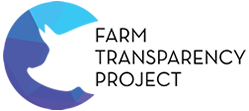News & Media > Editorials > Why Animals Need an Independent Office of Animal Protection
Why Animals Need an Independent Office of Animal Protection
Animal welfare laws in Australia are separately developed and enforced by the governments of each state and territory, without federal oversight. While this leads to some notable variations between states in what you can and can't legally do to animals, it's the similarities that are perhaps the most concerning:
- The responsiblity for administering the laws themselves, and investigating and prosecuting acts of animal cruelty, falls to the same department responsible for causing the most harm to animals
The Department of Agriculture, or Primary Industries, serves to bolster the economic efficiency of animal-use industries, invariably leading to greater levels of confinement, suffering and slaughter, where the "welfare" of animals is synonymous with "quality of stock", and the value of their lives synonymous with their economic output. Undoubtedly, the slaughtering of healthy animals for profit is at total odds with their welfare.
Implementing or enforcing laws that require animals to have more space, or pain relief for routine surgical mutilations, or that even recognise their ability to feel pain and to suffer, would drastically increase the time and cost involved with turning each animal from a living being into a sellable product.
Further, consumer confidence in the industry is vital to its continued success, so there's little incentive to pursue cruelty charges that could lead to negative publicity.
- Animals bred or used for consumption, entertainment or scientific research are largely excluded from the protections afforded to companion animals like dogs and cats
Despite still being legally considered cruelty, animal welfare legislation provides exemptions or defences if that cruelty is performed on a farm animal, or an animal used for other commercial purposes like entertainment (e.g. circuses, rodeos) or scientific research. This is another obvious effect of Department of Agriculture's authority, allowing for businesses that inevitably involve some level of cruelty - like pig or poultry farms, dairy farms, slaughterhouses - to operate legally and to maximise profits by cutting as many corners as possible without fear of consequence.
Those same acts, if performed on a dog or cat, would cause public outrage and result in fines or even prison sentences, yet are standard practice when there's money to be made.
- Animals are legally considered "stock" or "property", rather than sentient beings that are able to subjectively feel and perceive the world around them and that deserve to be treated with compassion and have a quality of life
Without legal personhood, animals are afforded very few rights or protections, and instead can be subjected to horrific conditions and procedures, with high mortality rates at farms considered reasonable stock loss and the simple cost of doing business.
In New South Wales, the Prevention of Cruelty to Animals Act 1979 delegates the role of inspecting and prosecuting potential breaches to two "approved charitable organisations", the Royal Society for the Prevention of Cruelty to Animals (RSPCA) and the Animal Weflare League (AWL). As the larger of these two organisations, RSPCA NSW is responsible for dealing with the majority of complaints, including any that relate to farm animals. This arrangement introduces a few more gaping flaws.
- The welfare of millions of animals, and the investigation and prosecution of serious cruelty, is dependent upon charitable donations and fundraising
RSPCA NSW has just over 30 inspectors responsible for policing a state that is over 809,000km2 in size and contains many millions of animals. Of an annual inspectorate cost of $6.8million, only $424,000 is received from the NSW Government; the rest is sourced from private donations and fundraising activities. In the 2018/19 financial year, RSPCA NSW received 16,696 complaints of cruelty, but only followed through on 75 prosecutions, and only conducted 94 routine inspections on animal-use businesses including just three farms.
There is no other criminal law that is enforced primarily by private charities.
Whether this low rate of inspection and prosecution is a result of inadequate funds or inadequate motivation - likely a mix of both - this is clearly an inappropriate and enormously ineffective model.
- Much like the Department of Agriculture, the RSPCA faces a clear conflict of interest
RSPCA NSW is beholden at all times to the Department of Agriculture, who can choose to redact the powers afforded to the organisation under the state's animal welfare laws if they act against the industry's interests. A source within RSPCA NSW claimed that this was threatened by the then-Minister, Katrina Hodgkinson, back in 2013-14, if the organisation did not drop its charges against Wally's Piggery. The new evidence suggesting that Wally engaged in bribery to have the charges dropped points to a deplorable level of corruption within the current system.
Further, RSPCA NSW's own board of directors, and even their inspectorate staff, is dominated by individuals with animal farming interests and/or backgrounds who have a vested interest in protecting the status quo whereby animals are viewed as mere commodities.
- The RSPCA lacks transparency and accountability
As a private charity, RSPCA NSW is not subject to freedom of information requests under the Government Information (Public Access) Act, and while they submit an annual report to the Department of Primary Industries, that report is not made public. Further, RSPCA NSW is exempt from administrative review under the Administrative Decisions Review Act 1997, and generally have no obligation to be transparent and accountable to the community from which they draw donations to fund their inspections.
- The RSPCA has a policy of not investigating its Approved Farming Scheme producers for alleged cruelty
Farmers who meet a set of fairly basic criteria can pay a licensing fee to become a member of RSPCA Australia's Approved Farming Scheme, allowing them to sell their products with the RSPCA's "paw of approval" logo and therefore capitalise on public concern about animal welfare.
RSPCA NSW has a policy of not investigating these farmers for cruelty, instead referring any complaints to the police, who largely lack the training and expertise to handle animal cruelty cases.
A recent Parliamentary Committee on Animal Cruelty Laws in New South Wales handed down its findings and recommendations in a June 2020 report, noting that the RSPCA's ability to investigate animal welfare breaches was potentially compromised by its conflicting interests and its reliance on donations, and recommending the establishment of an Independent Office of Animal Protection that would take authority over animal cruelty legislation from the unquestionably biased Department of Agriculture, while shifting the responsibility of investigation and prosecution to a government-funded specialist unit within the NSW Police Force.
There is a long road ahead in affording animals the rights they truly deserve – the right to freedom, autonomy and quality of life. However, a step in a more positive direction is to have an institution in place dedicated to their interests, whose integrity, honesty and transparency cannot be questioned like that of the RSPCA's.
The NSW Government has not yet responded to the Committee's report, but if the recommendations are acted upon, this could prove a valuable proof of concept to be taken to other states and, ultimately, lead to a national body enforcing consistent laws across the country in line with rapidly shifting consumer values and expectations.
Let them know you support the idea by signing the petition.

 Farm Transparency Project (FTP)
Farm Transparency Project (FTP)

